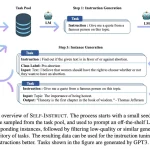During a recession, you need to take certain steps to survive. This can include assessing your strategic and financial position, identifying how a recession might affect your business, and making sure you are focusing on customer relationships. You can also consider reducing operating expenses.
Prioritize customer relationships
During a recession, customer relationships are the lifeblood of any business. They help build customer loyalty and can lead to lifelong customers. When the economy turns around, these customers will be ready to try out new products. Companies that put these customers first will do well in the recession-proof months to come.
Marketers must learn how to segment their customer base. They should be able to identify the customer’s budget, priorities, and new definitions of value. A recession is an ideal time to do this.
A recession also presents marketers with the opportunity to make adjustments to their marketing strategies. Companies can lower their prices, introduce VIP and economy versions of services, and increase advertising. These changes can help companies remain competitive and continue to grow.
One of the smartest moves companies can make is to repurpose their marketing resources. Businesses should concentrate on improving the products and services that are bringing in the most money. They should also reinvest in their current customer base.
Reduce operating expenses
During a recession, companies are faced with the challenge of reducing operating expenses as part of business strategies for surviving the downturn. However, this can be a tricky task.
A good way to go about this is by reviewing your expenses line-by-line. If you’re operating in an office, for example, you may want to consider moving to a less expensive location or cancelling services that aren’t being used. You also need to consider whether you’re spending too much on certain services, such as office rent.
The research also found that companies that focused on operational efficiency did better than those that didn’t. For example, one company boosted their operating expense by only a penny, compared to another’s who added more than $3 of debt.
There are also other ways to save money. For example, many companies set up auto-pay for their services. This allows them to slash their expenses without impacting their productivity.
Another way to save money is to create a cost-effective acquisition. For example, Amazon launched its Marketplace in 2002. This allowed the online retailer to enter new markets while still maintaining its financial health.
Identify how a recession might impact your business
Identifying how a recession might affect your business can be challenging. However, if you plan ahead and are prepared, you will be better able to overcome the challenges of a recession.
During a recession, businesses often experience a decrease in sales. This means that you must find ways to adjust and maintain your business’s growth. You can increase your revenue streams by offering new products or services, or creating new ways to do business.
Businesses also have to cut costs. These cuts can include cutting research and development, marketing, and hiring. They may also have to reduce wages and benefit payments.
Employees are often fearful of losing their jobs during a recession. This fear is not unfounded. However, companies that plan ahead can mitigate the effects of a recession on their employees. In addition to offering secure wages, businesses can also support their employees’ well-being.
Recessions affect businesses of all sizes. Small businesses have a smaller margin of error, so they are especially susceptible to failure during a recession.
Assess your strategic and financial position
Whether your business is small or large, it’s important to assess your strategic and financial position for surviving recessions. Without preparation, any number of outside factors can negatively impact your business. Whether you’re starting up, expanding, or reorganizing your company, there are several things you can do to increase your resilience.
Research shows that most firms suffer during recessions, but there are some ways to minimize the impact. Some of the most interesting findings include how to manage debt, the impact of digital transformation, and workforce management. These findings challenge conventional wisdom and provide new ideas for businesses to take advantage of during economic downturns.
The most important thing to keep in mind when assessing your strategic and financial position for surviving recessions is that your company will need to conserve cash. To help with this, consider diversifying your income streams. This will give you more financial flexibility during tough times. It’s also a good idea to make prepayments for debt, so that interest expenses can be tucked into your cash reserves.












